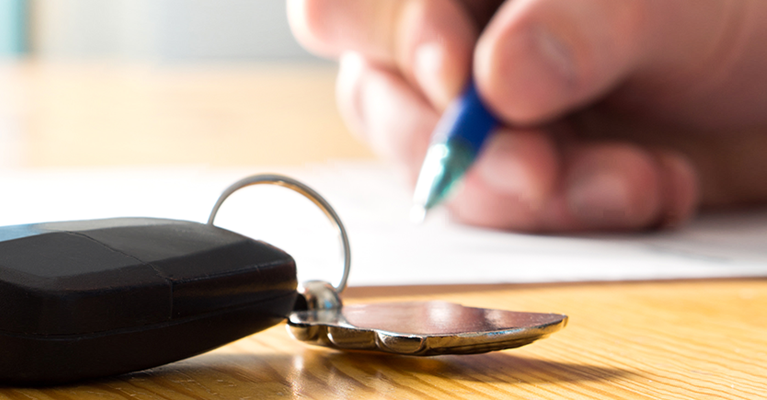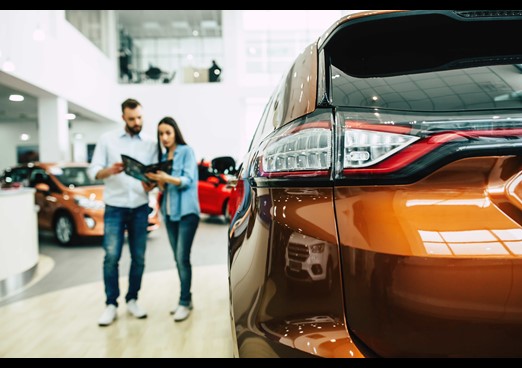Is a car loan cheaper than Car Finance?
If you don’t have ready cash or savings to buy a car, there are options to borrow the money – either with a bank loan or car finance.
Find out which loans you could be eligible for with our partner ClearScore and their trusted panel of lenders. Just like Asda Money, ClearScore is a credit broker, not a lender.
If you take out a product through ClearScore, Asda Money will receive a commission payment from ClearScore. The amount charged will be in connection with the specific product selected and so different amounts of commission are received. For more information please see our FAQs.
When you check your eligibility below you will be transferred to our partner ClearScore.

Top FAQs:
- What is a car loan and how does it work?
-
A car loan is usually an unsecured personal loan. You take out the loan and then you buy the car, which you’ll own outright. You’ll then need to pay the loan back through monthly instalments.
At Asda Money, we can help you check your eligibility for car loans from £1,000 to £25,000 through a trusted panel of lenders.
- What is car finance and how does it work?
-
Car finance differs from a car loan as you only own the car outright at the end of the finance deal. In some cases, you won’t own the car at all. The main types of car finance are:
- Hire purchase (HP): you usually pay a deposit of around 10% to a car finance company, followed by monthly payments. You’ll own the car once you’ve made the final payment at the end of the term.
- Personal contract purchase (PCP): you pay a deposit and borrow towards the remaining value of the car. You pay this back in monthly payments until the contract ends. Generally, PCP deals last for three to five years. At the end of the contract, you can make one large ‘balloon payment’ to buy the car outright. You can also trade the car in or start a new PCP deal on a new car instead of making the final payment.
- Car leasing: you put down a deposit towards the car, and agree a contract length and an annual mileage limit. You’ll then pay fixed payments each month for the length of the contract. At the end of the lease, you don’t own the car – you’ll return it to the dealership or take out another lease.
- What is the difference between car finance and a personal loan?
-
With a car loan, you take out a loan to buy the car straightaway, whereas with car finance you don’t own the car until the end of the deal. And in some cases not at all.
Key differences between the two include:
- With a personal loan, you’ll own the car from the start of the deal.
- The car can’t be taken away if you fall behind on the repayments on a car loan.
- You can use a car loan to buy a car from a private seller. Car finance is only available from a dealership.
- With PCP, you can return the car at the end of the deal. You can’t with a car loan.
- PCP deals often have annual mileage limits, which you won’t have with a car loan.
- You’re free to modify the car if you buy it outright with a car loan.
- What to consider when choosing between car finance and a personal loan
-
Think about the following before you make your decision:
- Overall cost: you’ll likely pay less over the term of the deal with a personal loan compared to car finance but this all depends on the APR and other loan details – always check the total repayable.
- Buying your car: opting for a personal loan gives you the flexibility to buy a car from a private seller and not just a dealership. This may expand your options when shopping around.
- Modifications: if you’re keen to modify your car in any way, a personal loan gives you this flexibility. You won’t be able to make modifications with a car finance deal.
- Owning the car: a car loan allows you to own the car outright straightaway. With car finance, if you want to own it outright at the end of the term you’ll need to weigh up HP vs PCP. PCP may give you lower payments each month, but you’ll need to budget for the balloon payment at the end of the term.
- Maintenance of the car: with either a HP or PCP deal, you’ll be required to maintain your car to a particular standard. Specifically with PCP, if you decide to return the car at the end of the term and not make the balloon payment, you may be charged if it’s damaged beyond wear and tear.
- Is a car loan cheaper than car finance?
-
For many people, a car loan is cheaper than car finance. If you have a good credit history and have borrowed responsibly in the past, you could be offered a better interest rate with a car loan. This means over the term of the loan, you’ll pay less interest on top of the amount borrowed. (Always check for hidden fees by looking at the total repayable).
With some car finance deals – often PCP – the monthly payments will be less, but you will need to make a large payment at the end if you want to own the car outright.
- Am I eligible for a car loan?
-
Your car loan eligibility will depend on:
- Age: you’ll need to be over 18 to apply for a car loan.
- Credit history: a strong credit score shows lenders you can borrow responsibly and that you won’t miss payments.
- Affordability: lenders will assess your financial circumstances to ensure you can meet the monthly repayments.
- Loan amount: the bigger the amount, the more you’ll have to pay back and the more your finances will be stretched. Lenders will use specific criteria to assess affordability for larger amounts.
Find a car loan through Asda Money
At Asda Money, we work with ClearScore to provide a panel of carefully selected and trusted lenders and allow you to check your eligibility for a car loan and see which one works for you.
We search the panel and list a range of different offers that could meet your needs. One simple eligibility check and you’ll see options from wide range of UK lenders. Then it’s a case of comparing and finding the best fit for you before going on to apply to the lender. We can also help you understand how to manage your finances with the Financial Support at Asda Money and we can help with your car insurance too.
